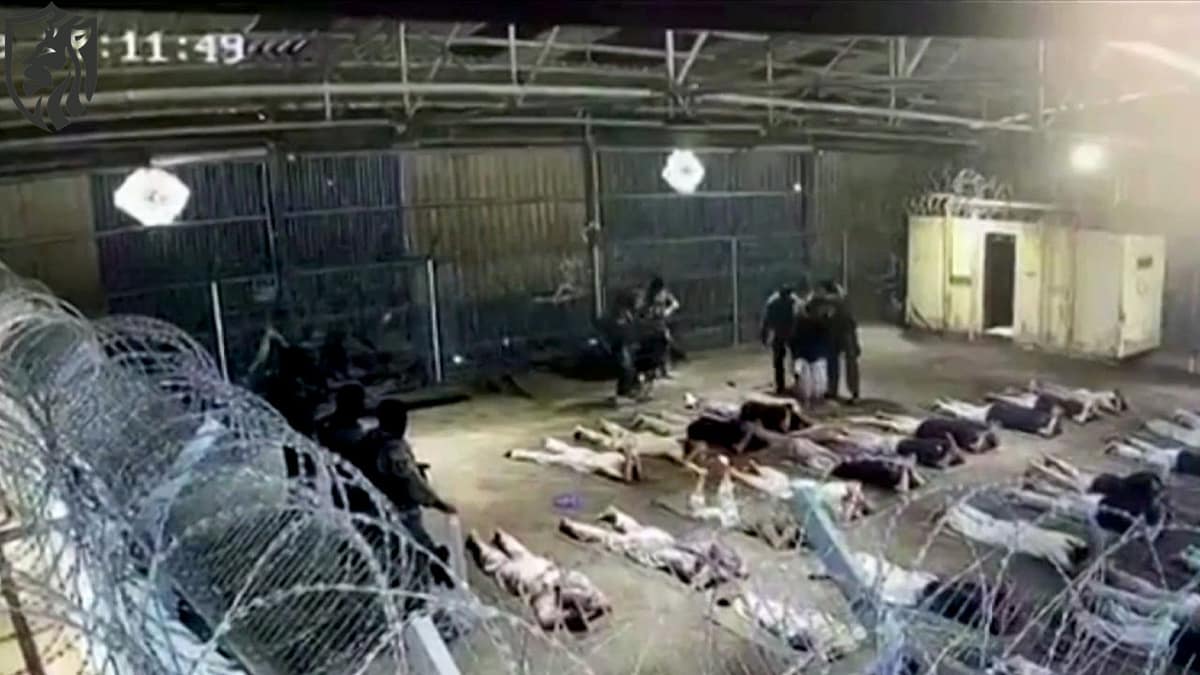
IDF legal chief quits, arrested over Sde Teiman leak
Importance of this Case
The Israeli military’s ex-top lawyer arrested over a high-profile leak has turned a legal controversy into a strategic crisis for Israel’s civil-military relations. The episode centres around a video, aired in August 2024, that allegedly shows the severe abuse of a Palestinian detainee by reservists at the Sde Teiman base in southern Israel. The footage—and the leak itself—now shape debates on accountability, command responsibility, and wartime information operations.
What happened—a concise timeline
Maj. Gen. Yifat Tomer-Yerushalmi, until last week, was the IDF’s Military Advocate General, resigned after admitting responsibility for releasing material to the media. After relatives reported her missing, police found her safe and then arrested the Israeli military’s ex-top lawyer over the leak probe. Authorities also arrested a second former senior prosecutor as the investigation widened.
Meanwhile, five reservists face charges for aggravated abuse and causing serious bodily harm. They deny wrongdoing and have asked Israel’s Supreme Court to dismiss the case. In October 2024, the detainee at the centre of the incident was reportedly released to Gaza as part of a prisoner exchange agreement.

The allegations at Sde Teiman
According to the broadcast video and subsequent filings, reservists allegedly isolated the detainee behind riot shields and inflicted severe injuries, including a reported stabbing with a sharp object. Medical treatment followed. Supporters of the accused call the case “cooked up”; critics argue the footage corroborates wider accounts of detainee abuse since the 7 October 2023 Hamas attacks.
This incident is why the Israeli military’s ex-top lawyer arrest story resonates: it sits at the intersection of battlefield conduct, legal oversight, and political pressure — all amplified by an information war where narratives travel faster than investigations.
Political shockwaves and command pressure
Defence Minister Israel Katz publicly condemned Tomer-Yerushalmi’s conduct and blocked her return from leave even before her resignation. Prime Minister Benjamin Netanyahu called the Sde Teiman incident one of Israel’s most severe PR attacks in decades.
On the right, the leak is cast as defamation that undermines troops. On the left, the leak is framed as rare proof of accountability. Thus, the Israeli military’s ex-top lawyer’s arrest became not only a legal headline but also a proxy fight over Israel’s wartime image.
Why the leak decision matters
Tomer-Yerushalmi said she approved media engagement to counter “false propaganda” targeting the army’s law-enforcement branch. That rationale highlights a persistent dilemma: should militaries declassify selectively to defend institutional legitimacy or preserve confidentiality to protect due process and operations? Either path carries risk. In this case, both the act of leaking and the content leak incurred consequences.
Legal and due process
From an operational-law perspective, two tracks now run in parallel:
- Criminal accountability for alleged abuse. Prosecutors must prove individual culpability beyond reasonable doubt while ensuring defendants’ rights.
- Criminal inquiry into the leak. Investigators will test whether official secrets, privacy laws, or judicial orders were breached—and by whom.

Each track influences the other. If courts find the footage authentic and lawfully obtained, it strengthens the abuse case. If courts determine the leak unlawful, separate penalties may follow, regardless of the abuse outcome.
Consequently, the Israeli military’s ex-top lawyer’s arrest also raises questions about precedent: future military jurists may be less willing to engage with the press, even when transparency could serve the public interest.
Strategic or reputational risk
Allegations of detainee abuse carry serious international-law implications. They also affect coalition diplomacy, deterrence narratives, and the morale of regular and reserve forces. Friends and critics of Israel now view Sde Teiman as a crucial test. It shows how the IDF polices its ranks. The ex-top lawyer’s arrest will keep the case in the spotlight. Legal advocacy, UN forums, and media will likely feature it for several months.
Verdict
The alleged abuse demands an impartial courtroom test; the Israeli military’s ex-top lawyer arrested over the leak demands clarity on what transparency looks like in wartime. However this week ends, the precedent will echo: future commanders, prosecutors, and soldiers will operate under rules reshaped by what the courts decide here — and by how Israel demonstrates that lawful conduct and credible oversight remain strategic assets, not public-relations liabilities.








